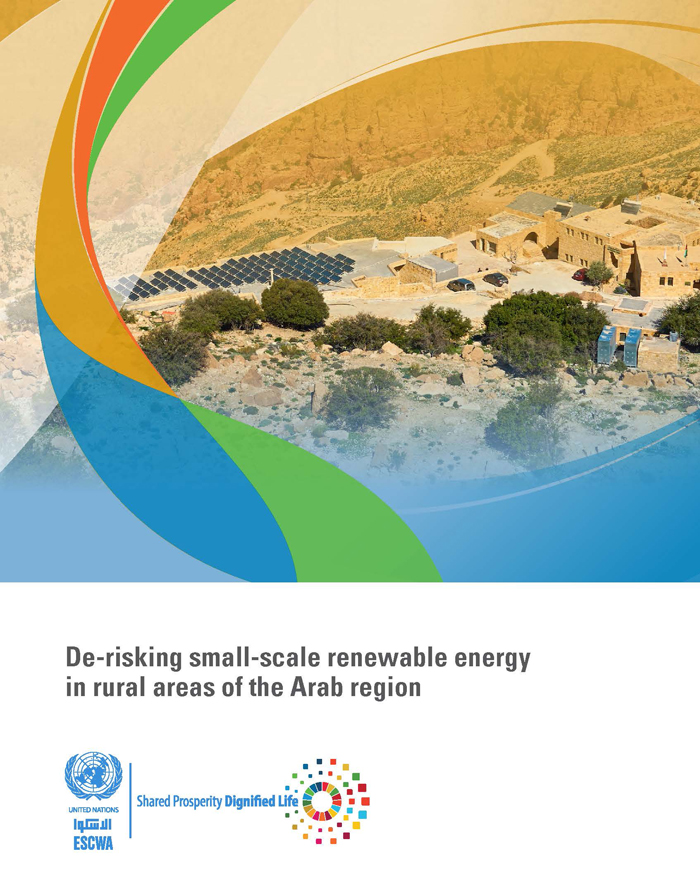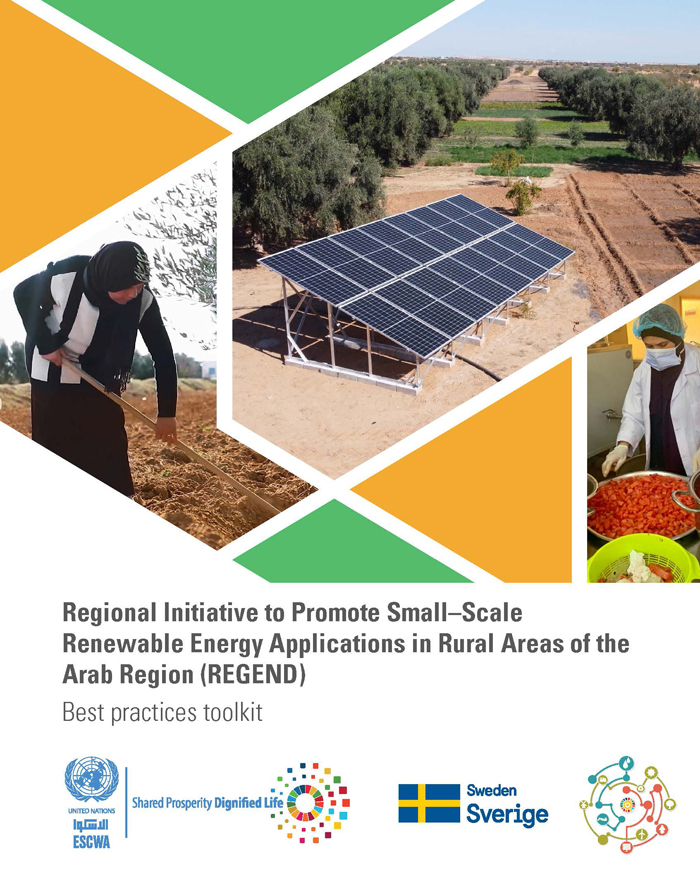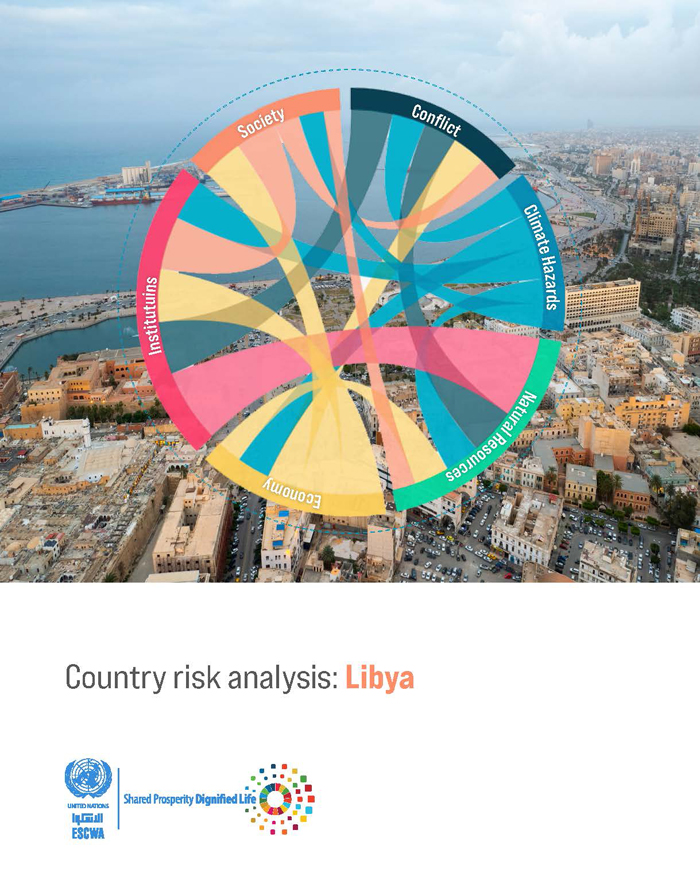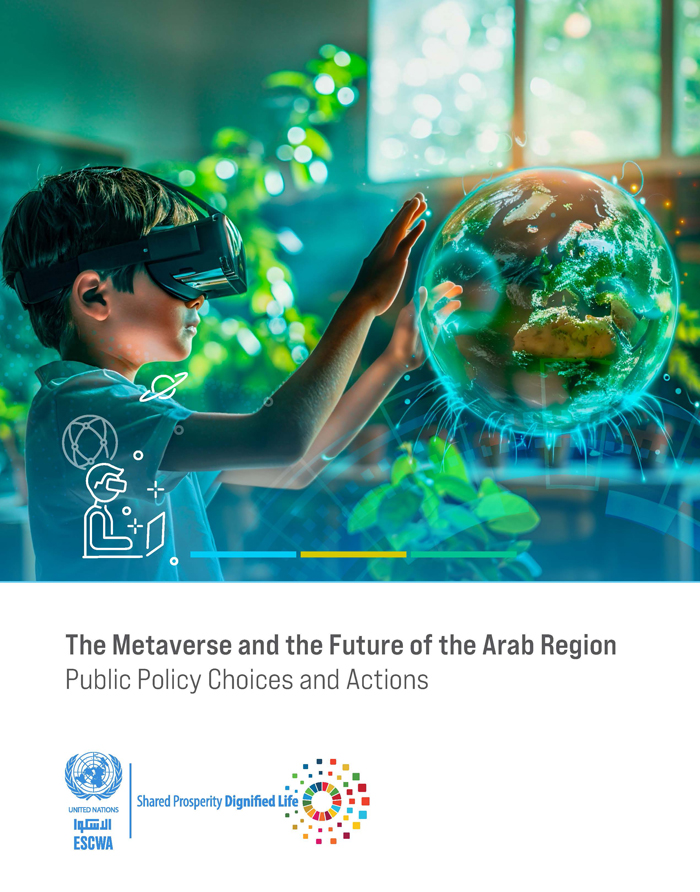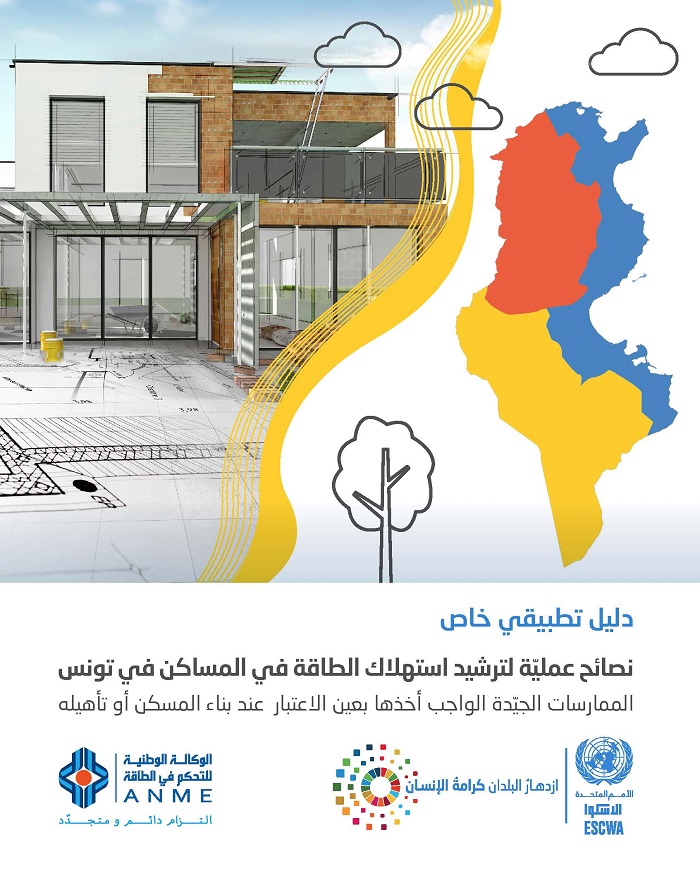
ESCWA Publication: E/ESCWA/CL1.CCS/2020/INF.3/REV.1
Country: Republic of Tunisia
Publication Type: Information material
Cluster: Climate Change and Natural Resource Sustainability
Focus Area: Climate change
Initiatives: Up-scaling energy efficiency in residential & services sectors
SDGs: Goal 7: Affordable and Clean Energy, Goal 11: Sustainable Cities and Communities, Goal 13: Climate Action
Keywords: Buildings, Thermal energy, Bioclimatology, Ventilation, Solar energy, Energy efficiency, Energy conservation, Lighting, Energy consumption, Technical cooperation, Climatic zones, Manuals, Open spaces
Special guidebook: Practical guidelines for adopting energy efficiency measures in residential units in Tunisia: Good practices to be considered when constructing or rehabilitating a dwelling
July 2022
This guide seeks to inform households on best sustainable energy practices that need to be considered during the dwelling building or retrofit process. It provides practical advice and specific guidelines related to building design and material thermal quality that can contribute to optimizing and reducing the building’s energy consumption.
The guidelines target the large public, providing in simple language useful information about the different sustainable energy solutions that are readily available for buildings’ design and envelope. These information cover the following topics: The effect of climatic conditions and other factors on the indoor temperatures, choosing the best direction for the building to benefit from the sun’s heat for heating in winter and avoid it in summer, using the layout of internal spaces to optimize the building energy consumption, using external vegetation to improve the energy sustainability of the building, informing on the role of thermal insulation materials, using high-energy performance glass in windows, adopting sunscreens and other shading elements, making use of the building’s thermal mass, effective ventilation of the dwelling, preventing uncontrolled air leakages and relying on natural daylighting.
This version is specific to Tunisia, reflecting the prevailing linguistic and technical peculiarities and its climatic conditions. It has been prepared for a large public dissemination as part of the activities planned in Tunisia within the framework of the United Nations-funded Development Account project on “up-scaling energy efficiency in the residential and services sectors in the Arab region”, which aims to enhance the capacity of ESCWA member States in improving and optimizing energy efficiency in the building sector and up-scaling energy efficiency programs in the existing residential and non-residential building stock.
Related content
Climate change
,
This guide seeks to inform households on best sustainable energy practices that need to be considered during the dwelling building or retrofit process. It provides practical advice and specific guidelines related to building design and material thermal quality that can contribute to optimizing and reducing the building’s energy consumption.
The guidelines target the large public, providing in simple language useful information about the different sustainable energy solutions that are readily available for buildings’ design and envelope. These information cover the following topics: The effect of climatic conditions and other factors on the indoor temperatures, choosing the best direction for the building to benefit from the sun’s heat for heating in winter and avoid it in summer, using the layout of internal spaces to optimize the building energy consumption, using external vegetation to improve the energy sustainability of the building, informing on the role of thermal insulation materials, using high-energy performance glass in windows, adopting sunscreens and other shading elements, making use of the building’s thermal mass, effective ventilation of the dwelling, preventing uncontrolled air leakages and relying on natural daylighting.
This version is specific to Tunisia, reflecting the prevailing linguistic and technical peculiarities and its climatic conditions. It has been prepared for a large public dissemination as part of the activities planned in Tunisia within the framework of the United Nations-funded Development Account project on “up-scaling energy efficiency in the residential and services sectors in the Arab region”, which aims to enhance the capacity of ESCWA member States in improving and optimizing energy efficiency in the building sector and up-scaling energy efficiency programs in the existing residential and non-residential building stock.
